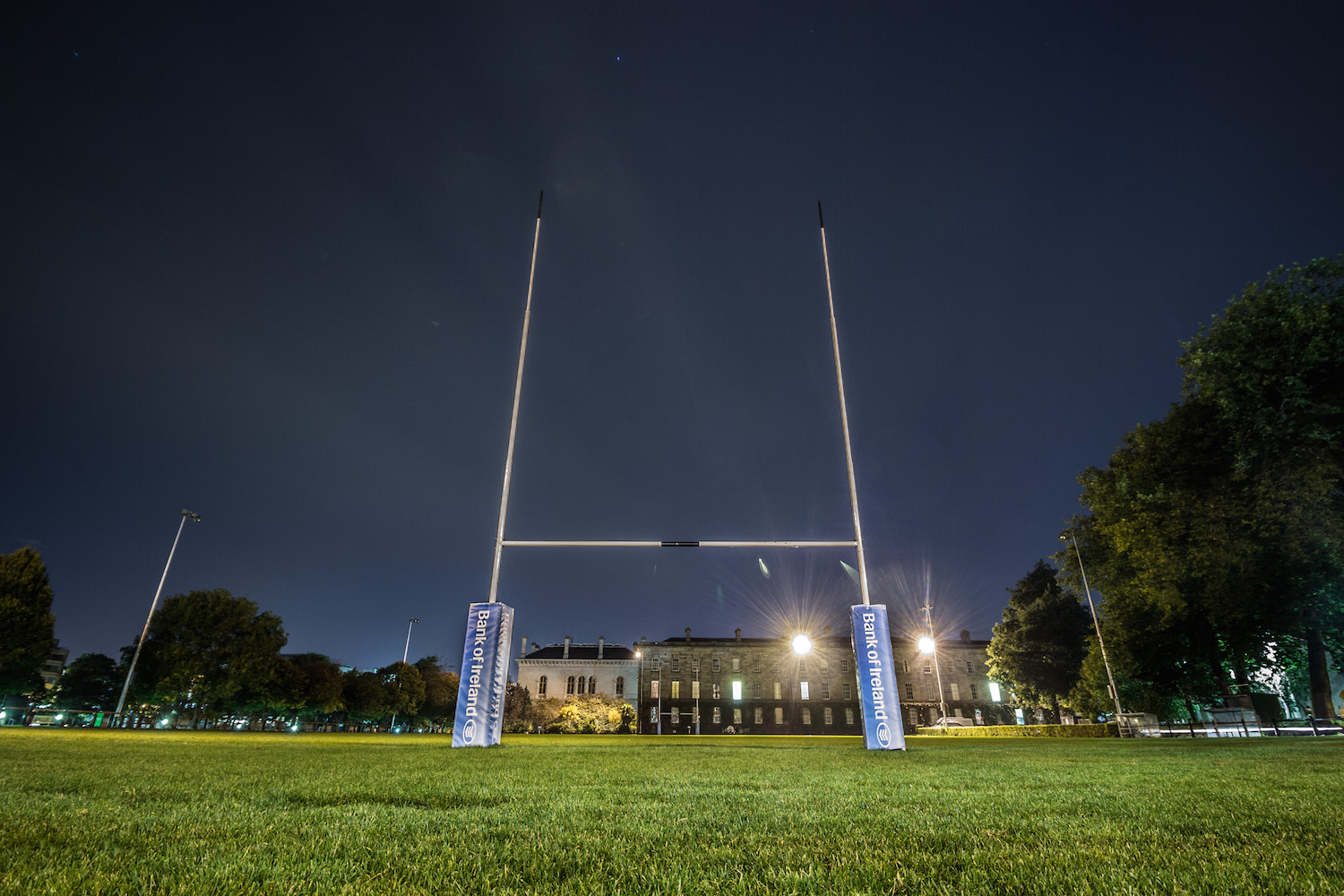It was the beginning of third year, and September’s optimism abounded. Friday night approached its wee hours somewhere on Harcourt St. Armed with my shiny new chat-up line, I approached a lanky guy at the bar, someone likely to be impressed by it. “Yeah, I play rugby”, I hollered confidently at this thin man over the thumping music, “Look at this massive bruise.” His eyes widened in shock at the purple splotch on my arm. “Oh, wow, how’s that going?”, he inquired, his voice tinged with irony. It was a shutdown that would become all too familiar, an unspoken retort that insinuated “this isn’t for you”.
My eagerness to become more involved in Trinity life had led me to the stand of Dublin University Rugby Football Club (DUFC), Trinity’s rugby club and, €3 later, I was on the team. I didn’t think it would be for me, but then abruptly, happily, it was. I anticipated that my title as “second row” might provide some sort of clout on the social scene. Blunt and bold, my revelation was often met with palpable discomfort or surprise. My brothers, friends from home, or strangers I happened to tell all uttered the same sceptical response: “Why?”.
So, naturally, I began to change my tone – tough and loud on the pitch, demure and passive off it. “I like to keep it on the down-low because it’s not very ladylike”, I’ve offered too frequently. Giggling, flippant, insincere and deeply ambivalent about my ambivalence. I had subconsciously changed tactic over the course of the year, assuming the role that people thought a chirpy blonde American girl should play, rather than asserting my right to assert myself. And it hit me harder than my first tackle of the season ever could: I began acting this way because women have been made to believe that a sport like rugby is not proper or respectable for them to play. Excuses are made for women who choose to play rugby, that we are just “rugger huggers”, always in pursuit of an ox of a man, or we are all butch, the exception to femininity, not the rule.
I can embody the physicality, athleticism, competitiveness and dominance which society has earmarked as masculine attributes
I’m ready to be blunt and bold again. Let me tell you why. Rugby is not easy. It is technical and intimidatingly physical. The fact that I went from never having held a rugby ball, to starting in the colours match gives me an overwhelming amount of pride. I believe the right to celebrate this accomplishment is something too often denied to women in our society – a culture that champions the modest woman who performs a becoming feminine reserve. For me, part of the appeal of rugby is in occupying a conventionally male realm. I can embody the physicality, athleticism, competitiveness and dominance which society has earmarked as masculine attributes.
Over this past year, I’ve become increasingly unsettled at the disconnect I feel between my newfound enthusiasm for the sport, something that I promise now reaches beyond just chat-up line material, and my uncharacteristic reticence. My unease is, undoubtedly, connected to something bigger. The respect denied to women in almost all category of sport is a product of the general desire to protect traditional forms of masculinity at all costs. As a newcomer to the beacon of machismo that is DUFC, I feel especially aware of the club’s acquiescence to this cultural trend, and moreover, how it directly affects me.
When girls feel like they can’t join in on the pitch, this attitude seeps into other facets of their lives
The archaic valuation of women that sees beauty, grace and delicacy as pinnacles of femininity is the lifeblood of old boys’ clubs like DUFC (founded in 1854, it’s the world’s oldest existing club). But the convention of rugby as a traditionally “male sport” certainly does not legitimise it as one. I realise that, to some, gender inequality in sport might seem insignificant, an abstraction even. But I disagree. The modern conceptualisation of sport still contains a heavy male bias. When girls feel like they can’t join in on the pitch, this attitude seeps into other facets of their lives. When society idolizes male athletes – and marginalises women in sport – it perpetuates the “boys are better” myth that hurts both boys and girls. If men are raised on the assumption that much of their identity is derived from physical prowess, how can they respect the women trespassing on their “male sport”?
As an athlete within Trinity, I’ve come to feel a novel anxiety. Being a female rugby player is devoid of the social uplift that high-school sports once afforded me. Instead, I often feel scoffed at. The women’s team is systematically refused the respect it deserves. How can we hold ourselves in high esteem when, it seems, no one else does? The self-respect gained from hard work like rugby is a right that must be made available to both sexes.
I’m ready now to answer that incessant and insulting “Why?” with the same, simple answer any boy would readily give: Because I love it.







